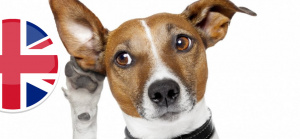Difference between revisions of "Language/English/Vocabulary/Homophones-II"
m (Quick edit) |
|||
| (3 intermediate revisions by 2 users not shown) | |||
| Line 1: | Line 1: | ||
<div class="pg_page_title">English homophones - part II</div> | <div class="pg_page_title">English homophones - part II</div> | ||
[[File:Homophones.jpg|thumb]] | [[File:Homophones.jpg|thumb]] | ||
'''[[Language/English/Vocabulary/Homophones|GO to PART I]] - THIS IS PART II''' | '''[[Language/English/Vocabulary/Homophones|GO to PART I]] - THIS IS PART II''' | ||
This is part II of English homophones. | This is part II of English homophones. | ||
| Line 7: | Line 8: | ||
<youtube>https://www.youtube.com/watch?v=vR-QqujzKMQ</youtube> | <youtube>https://www.youtube.com/watch?v=vR-QqujzKMQ</youtube> | ||
==THEIR/THERE/ THEY’RE== | ==THEIR/THERE/ THEY’RE== | ||
| Line 82: | Line 81: | ||
* Eight (noun) - the number after 7, before 8. | * Eight (noun) - the number after 7, before 8. | ||
<blockquote>“We bought eight bananas.”</blockquote> | <blockquote>“We bought eight bananas.”</blockquote> | ||
{{#seo: | {{#seo: | ||
| Line 91: | Line 87: | ||
|og:image=https://polyglotclub.com/wiki/images/thumb/9/92/Homophones.jpg/450px-Homophones.jpg | |og:image=https://polyglotclub.com/wiki/images/thumb/9/92/Homophones.jpg/450px-Homophones.jpg | ||
}} | }} | ||
==Other Lessons== | |||
* [[Language/English/Vocabulary/As-if-and-as-though;-like|As if and as though; like]] | |||
* [[Language/English/Vocabulary/How-to-Write-a-Good-CV|How to Write a Good CV]] | |||
* [[Language/English/Vocabulary/Best-Songs-to-Learn|Best Songs to Learn]] | |||
* [[Language/English/Vocabulary/Slang-Abbreviations|Slang Abbreviations]] | |||
* [[Language/English/Vocabulary/Números-cardinales-en-inglés|Números cardinales en inglés]] | |||
* [[Language/English/Vocabulary/French-words-used-in-English|French words used in English]] | |||
* [[Language/English/Vocabulary/Not…as-such|Not…as such]] | |||
* [[Language/English/Vocabulary/Top-1000-Spiritual-quotes|Top 1000 Spiritual quotes]] | |||
* [[Language/English/Vocabulary/Appear|Appear]] | |||
* [[Language/English/Vocabulary/What-is-the-most-Beautiful-Word|What is the most Beautiful Word]] | |||
<span links></span> | |||
Latest revision as of 23:27, 26 March 2023
GO to PART I - THIS IS PART II
This is part II of English homophones.
English homophones are words that sound alike but mean something different.
THEIR/THERE/ THEY’RE[edit | edit source]
- Their (pronoun) - the possessive pronoun for the subject “they.”
“They should practice their lessons.”
- There (adverb) - refers to a place where you are not located.
“He is over there.”
- They’re (contraction) - they are.
“The students work hard, they are good students.”
SIGHT/SITE[edit | edit source]
- Sight (noun) - vision, the ability to see.
“She saw the mountains in the distance. She has good eye sight.”
- Site (noun) - synonym for “place,” other meaning: website.
“He was working on a construction site.”
MIGHT/MITE[edit | edit source]
- Might (verbal auxiliary) - the possibility of something happening or the power authority of an individual or group.
“We might go on vacation next month.”
“He fought with all his might to win the boxing match.”
- Mite (noun) - a tiny insect that resides in dust.
“I must wash my pillow to avoid dust mites.”
KNOW/NO[edit | edit source]
- Know (verb) - to have knowledge or understanding about something.
“I know all the names of the trees in my yard.”
- No (determiner) - indicates a negative; something untrue.
“I will say “no” to the invitation.”
FOR/FOUR[edit | edit source]
- For (preposition) - to indicate a purpose or someone who receives something.
“We bought a cake for her birthday.”
- Four (noun) - the number after 3, before 5.
“We have four children.”
FLOUR/FLOWER[edit | edit source]
- Flour (noun) - ground grains for making bread
“Add some flour to the recipe.”
- Flower (noun) - the blossom from a plant.
“I can smell the flowers in the garden.”
HAIR/HARE[edit | edit source]
- Hair (noun) - outgrowth or covering of the body.
“It is time to go to the barber for a hair cut.”
- Hare (noun) - like the rabbit; timid long earned small mammal.
“We tried to chase the hare out of the vegetable garden.”
MEAT/MEET[edit | edit source]
- Meat (noun) - edible food from an animal, like beef from a cow.
“I like my meat cooked well done.”
- Meet (verb) - to be introduced by someone or refers to a meeting.
“We will meet on Friday.”
BUY/BY/BYE[edit | edit source]
- Buy (verb) - to make a purchase.
“Let me buy our lunch.”
- By (preposition) - next to, near, when describing a location, also indicates who created something.
“I left my purse on the table by the chair.”
“The book was written by Chaucer.”
- Bye (exclamation) - short phrase for “farewell.”
“I want to say “bye” to my friends before they leave.”
ATE/EIGHT[edit | edit source]
- Ate (verb) - past tense of “eat,” consumed food.
“I ate the pizza. It was good.”
- Eight (noun) - the number after 7, before 8.
“We bought eight bananas.”
Other Lessons[edit | edit source]
- As if and as though; like
- How to Write a Good CV
- Best Songs to Learn
- Slang Abbreviations
- Números cardinales en inglés
- French words used in English
- Not…as such
- Top 1000 Spiritual quotes
- Appear
- What is the most Beautiful Word
